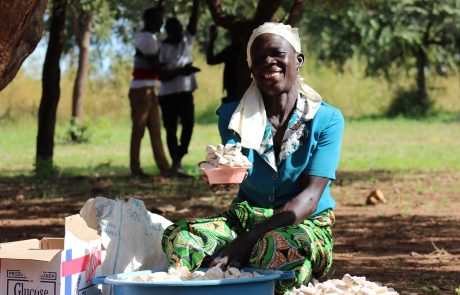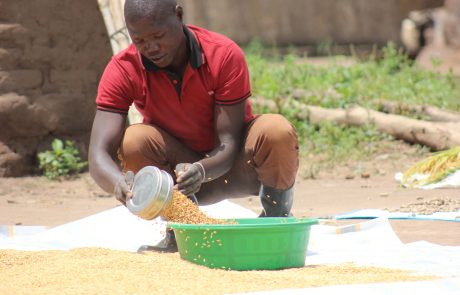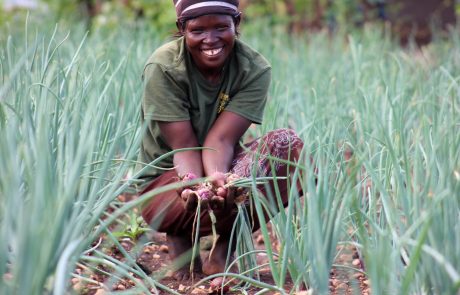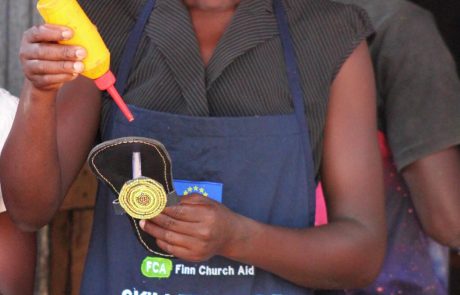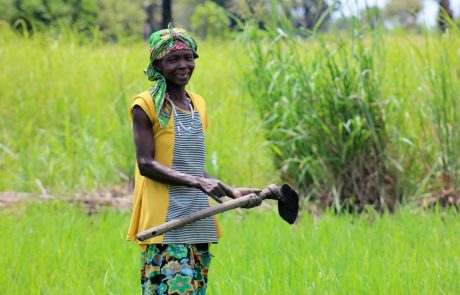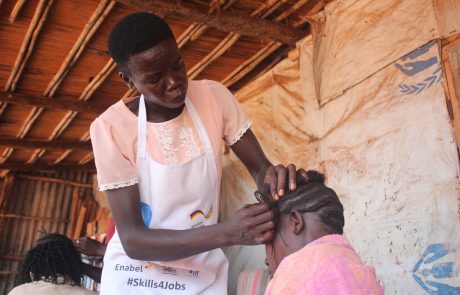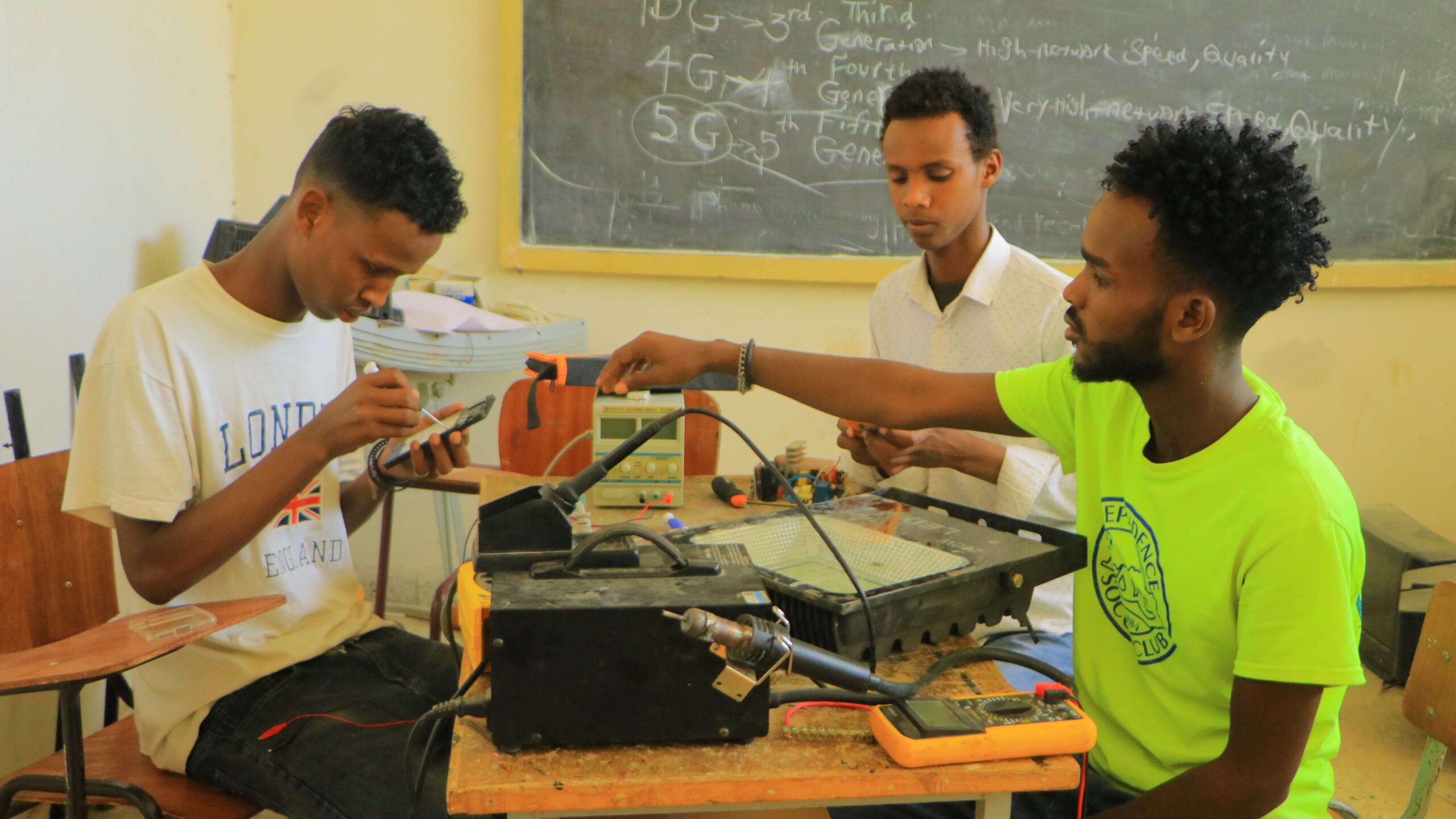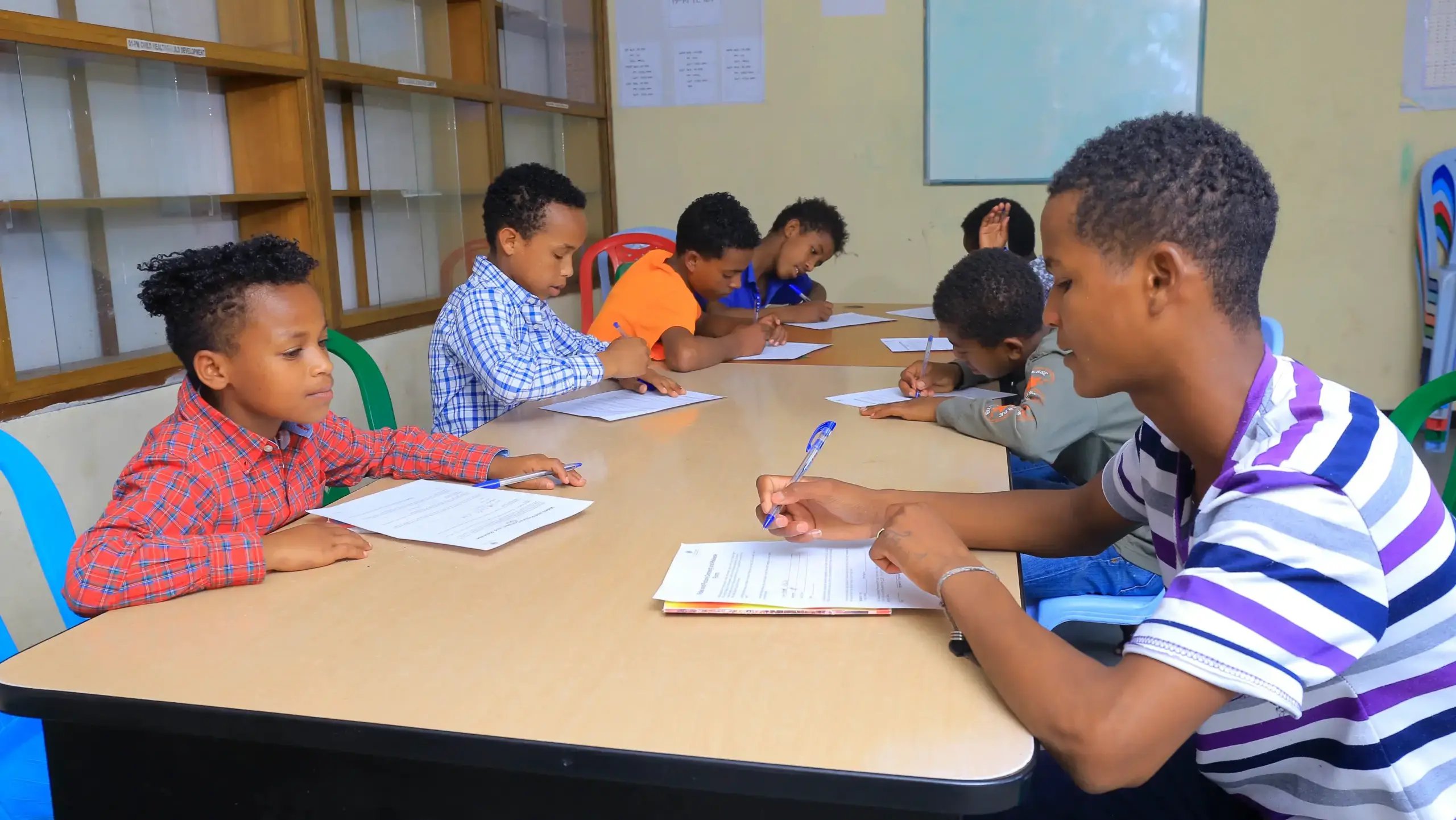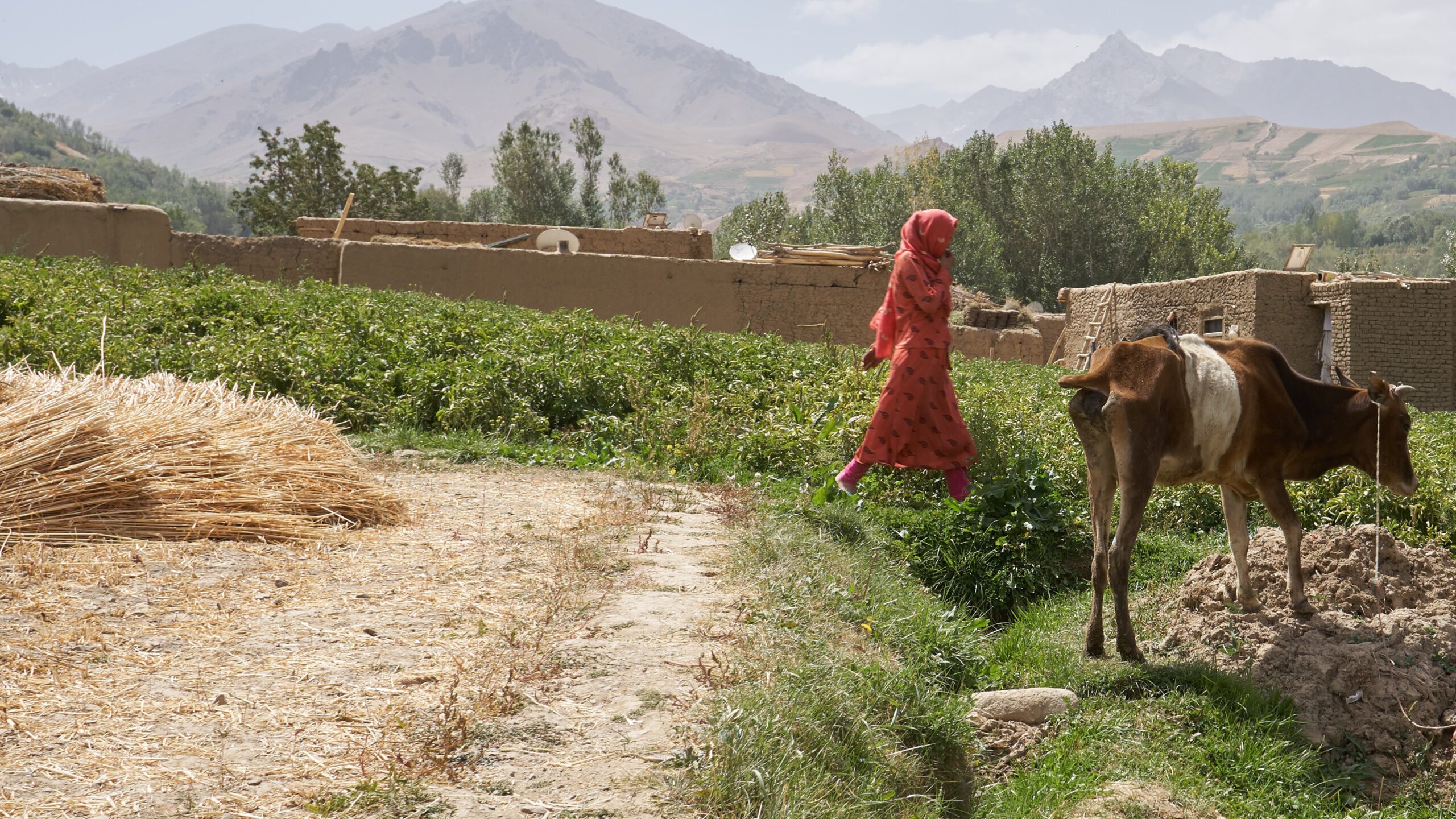The RISE program seeks to strengthen local authorities and improve economic opportunities of young people in host and refugee communities in the northern districts of Uganda.
After Turkey and Colombia, Uganda hosts the largest number of refugees in the world (1.5 million of refugees). Refugee populations experience high unemployment and limited economic opportunities. The influx of refugees has shifted economic burden onto host communities already experiencing limited economic opportunities, resources, and an underdeveloped private sector. In response to this, the RISE program aims to improve the conditions of both refugee and host communities’ economic integration, social cohesion and self-reliance through improved economic opportunities.
The RISE program offers youths (ages 18 to 35 years old) two complementary trainings: Technical Short-Term Trainings (TSTT) and Financial Literacy and Entrepreneurial Skills (FLES) training. The TSTT are technical (vocational) trainings in different trades delivered for three months in six different vocational training institutions (VTIs). The FLES trainings provide an intensive course on financial literacy, entrepreneurial- and soft- skills. The FLES trainings will be delivered immediately after the completion of the TSTT to half of the trainees in three VTIs for two weeks.
A counterfactual impact evaluation (CIE) will be conducted to determine program impact. C4ED will conduct a RCT in which members of the host communities and refugees will be randomly assigned to (i) a first treatment group of trainees that will receive TSTT, (ii) a second treatment group of trainees that will receive TSTT and intense FLES training, or (iii) to a control group that will not participate in the trainings. VTIs collect the applications forms from interested eligible candidates. The forms are self-administered and collect baseline characteristics of the applicants.
Given the implementation capacities of RISE, the trainings will take place in two cohorts. After baseline data is collected for one cohort, the cohort can take part in the trainings. To assess key outcomes, midline and endline data collections will be conducted six months and 18 months after the trainings, respectively. Qualitative data collection will also be undertaken to gain insight into the contextual mechanism which drove the results observed in the RCT.
Of 2,000 beneficiaries participating in the study, outcomes among key subgroups will be assessed to differentiate the impact of the program by gender and refugee status.

